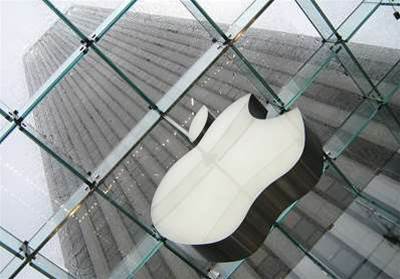Apple has been discussing how its HealthKit service will work with health providers at several US hospitals as well as with Allscripts, a competitor to electronic health records provider Epic Systems, signalling its desire to push ahead despite a number of regulatory speed humps.

While the talks may not amount to anything concrete, they underscore how Apple is intent on making health data, such as blood pressure, pulse and weight, available for consumers and health providers to view in one place.
Currently, this data is being collected by thousands of third-party health care software applications and medical devices, but it isn't centrally stored. Apple also hopes physicians will use this data to better monitor patients between visits – with the patient's consent — so the doctors can make better diagnostic and treatment decisions.
Apple has not divulged much specific detail on HealthKit, which is expected to be incorporated into the iPhone 6 come September. But Apple intends HealthKit to become a lynchpin in a broader push into mobile healthcare -- a fertile field that rivals Google and Samsung are also exploring.
The iPhone maker has previously disclosed partnerships with Nike, Epic, and the prestigious Minnesota-based Mayo Clinic, which boasts a suite of mobile apps. Mayo is reportedly testing a service to flag patients when results from apps and devices are abnormal, with follow-up information and treatment recommendations.
Dozens of major health systems that use Epic's software will soon be able to integrate health and fitness data from HealthKit into Epic's personal health record, called MyChart, according to a person briefed by Apple.
Kaiser Permanente is currently piloting a number of mobile apps that leverage HealthKit, two people have said, and is expected to reach out to Apple to discuss a more formal partnership. Apple is also understood to be talking to Mount Sinai, the Cleveland Clinic and Johns Hopkins hospitals.
"Apple is going into this space with a data play," said Forrester Research's health care analyst Skip Snow. "They want to be a hub of health data."
But some implementations with HealthKit may be a challenge due to a web of privacy and regulatory requirements and many decades-old IT systems, said Morgan Reed, executive director of ACT, a Washington-based organisation that represents mobile app developers.
"Everybody is knocking on the door," he said. "But I doubt that HealthKit will merge with all the existing systems."
Apple will also need to content with an Australian company sharing the same name as its new product - the locally-based HealthKit software offers a platform for the management of practice and patient administration for medical professionals worldwide.
Its owners were less than pleased at seeing their named used when Apple announced the service earlier this year.
Apple declined to comment on upcoming partnerships for HealthKit. An Allscripts spokesperson said it did not publicly discuss contractual or prospective agreements. Mount Sinai and Johns Hopkins' press officers had no information to share at this time.
Cleveland Clinic associate chief information officer William Morris said the clinical solutions team is experimenting with HealthKit's beta and is providing feedback to Apple.
HealthKit and related services could become a means for some technology teams at budget-strapped hospitals to save time and resources, as mobile developers won't have to integrate with dozens of apps and devices like fitness trackers or Glucometers as they have to now, he said.
Kaiser Permanente's Brian Gardner, who leads a research and development group responsible for Kaiser's mobile offerings, said many physicians are thinking about how to leverage patient-generated data from apps and devices.
Along with physicians and consumers, Apple will have to juggle the requirements of regulators at federal agencies or departments. Digital health accelerator Rock Health estimates that at least half a dozen government offices have a hand in some facet of mobile health.
HealthKit relies on the ability of users to share data. But depending on how that data is used, its partners – and potentially even Apple - may be subject to the requirements of the Health Insurance Portability and Accountability Act (HIPAA).
HIPAA protects personally-identifiable health information - such as a medical report or hospital bill - stored or transmitted by a "covered entity," like a care provider or health plan. Patient-generated information from a mobile app, for instance, has to be protected once the data is given to a covered entity or its agent.
Joy Pritts, recently-departed chief privacy officer for the Office of the National Coordinator for Healthcare IT (ONC), said Apple may need to re-determine its responsibility to safeguard data with each new partnership.
For instance, if Apple and Nike team up to collect running data, neither would be subject to HIPAA, she said. But if Apple gets and stores clinical information on behalf of the Mayo Clinic, both would likely have to abide by HIPAA.
To smooth its path, Apple has consulted or hired health experts and attorneys, who are well-versed on privacy and regulatory requirements. Senior officials have paid a visit to key government offices, including the FDA and the ONC. Apple is expected to roll out HealthKit, so that providers – and not Apple -- are responsible for adhering to privacy requirements.


_(20).jpg&h=140&w=231&c=1&s=0)
_(33).jpg&h=140&w=231&c=1&s=0)







 iTnews Executive Retreat - Security Leaders Edition
iTnews Executive Retreat - Security Leaders Edition
 iTnews Benchmark Awards 2026
iTnews Benchmark Awards 2026
 iTnews Cloud Covered Breakfast Summit
iTnews Cloud Covered Breakfast Summit
 The 2026 iAwards
The 2026 iAwards












_(1).jpg&h=140&w=231&c=1&s=0)



